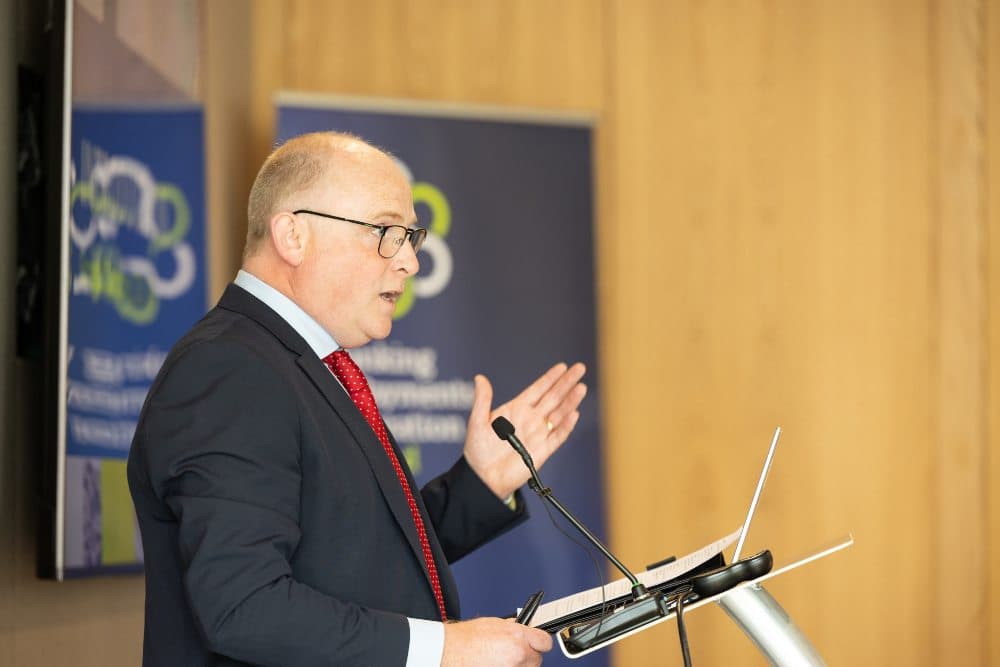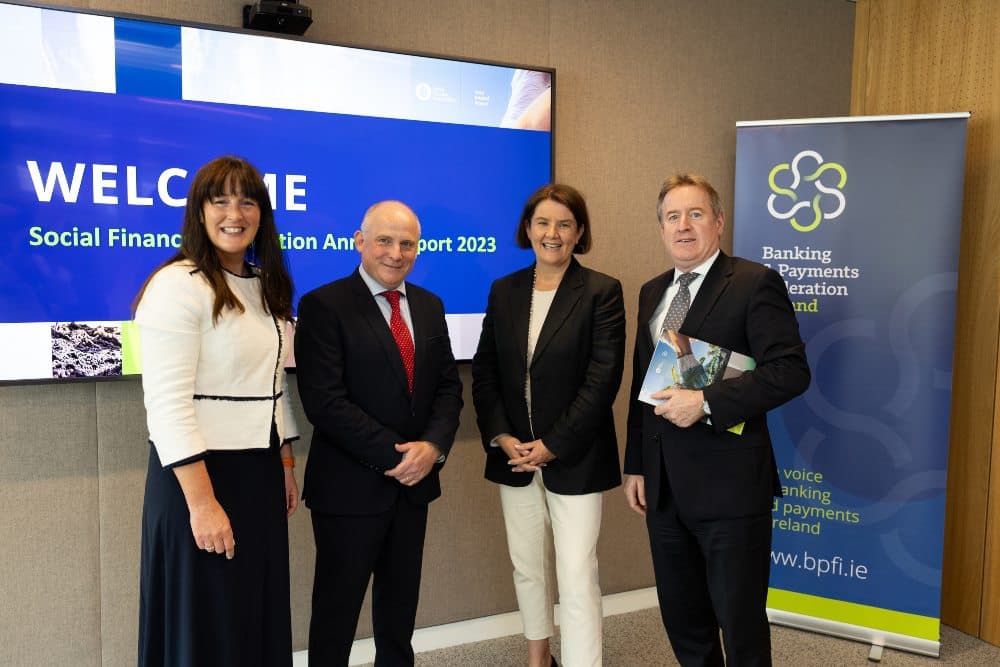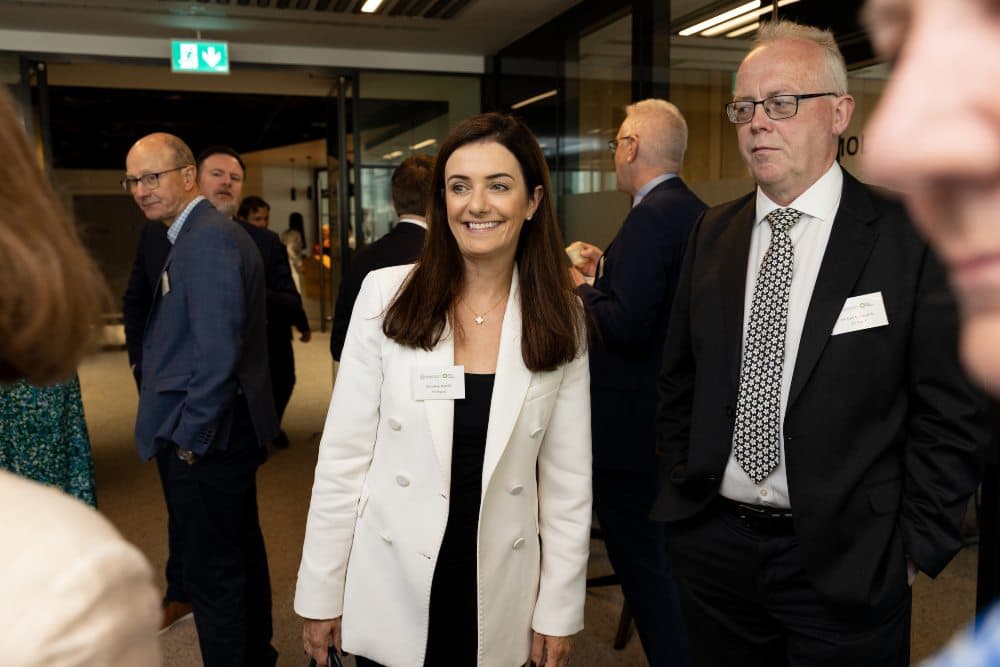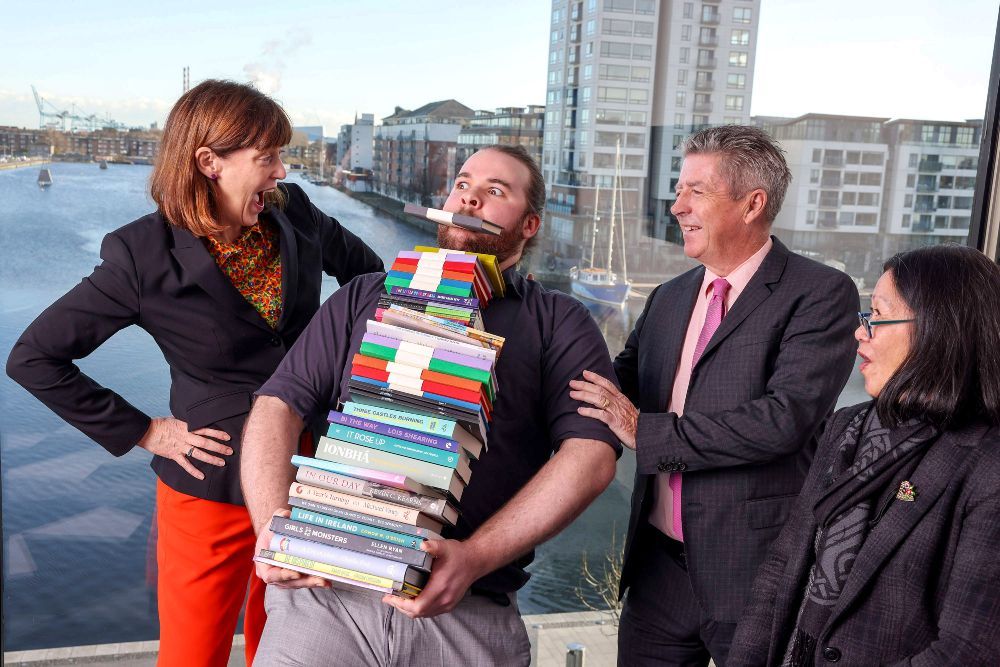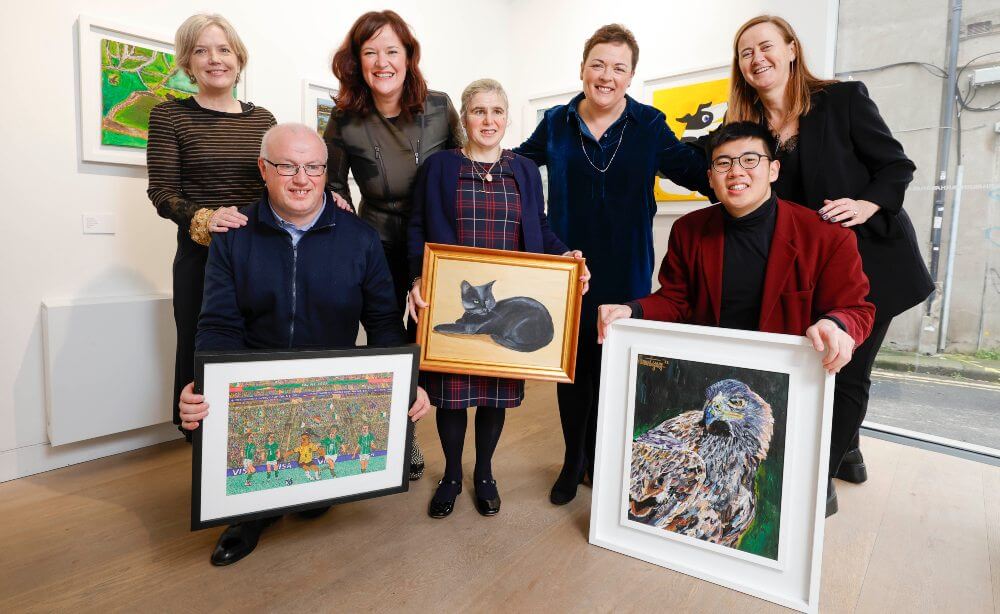The Big Interview: Garrett O’Donohoe, CEO of the Social Finance Foundation, on powering Ireland’s circular economy and plans to double community and social enterprise lending to €100m per year.
An initiative that was started by the Irish Government in 2007 and supported back then by 12 Irish-based banks continues to thrive and is responsible for the funding of endeavours that are continually changing Ireland’s social fabric.
While the banking landscape has changed radically, the Social Finance Foundation continues to play a role in improving Irish society with the support of three banks including Bank of Ireland, AIB and PTSB.
“The reality is that by themselves these can seem like small projects, but the impact for the community and our society can be huge”
The not-for-profit Social Finance Foundation (SFF) was set up to address the needs of the community organisations and social enterprises for loan funding which can be difficult to obtain from mainstream financial institutions. Acting as a ‘wholesaler’, it provides funding to its lending partners – Clann Credo and Community Finance Ireland. Its motto is – ‘Finance for Social Good’.
A financial foundation for Ireland’s social fabric
The CEO of Social Finance Foundation Garrett O’Donohoe. Images: Jason Clarke
“We are kind of like the guardian of the social finance ecosystem in Ireland”
Social Finance Foundation has provided over €225m in loan finance to more than 2,000 community and voluntary groups and social enterprises since 2007.
Via the fund, term and bridging loans of up to €600,000 are available via Clann Credo and Community Finance Ireland with minimal processing time, to community and voluntary groups or social enterprises that create a social benefit for their community.
In 2023, loan funding was allocated across seven sectors, including: community sports, health and leisure €13.4m (53%); community and voluntary groups €6.9m (27%), social enterprises €3m (12%); arts, heritage and tourism €0.9m (3%); minority religions €0.7m (3%); and education and social care housing €0.6m (2%).
The Foundation has recently added €20m in loan funding from the Council of Europe Development Bank and also enjoys the support of the European Investment Fund through a €25m loan guarantee facility.
SFF now intends to double community lending from €59m in 2023 to €100m per annum by 2029.
Speaking with ThinkBusiness, the CEO of Social Finance Foundation Garrett O’Donohoe said it was a credit to the banking industry that the fund survived the financial crisis and the various transformations of the sector in recent years. “The 12 banks initially put €25m into the fund which was used to finance social enterprises and community groups. But it became clear after a few years that this wasn’t going to be enough to fulfil demand and so the 12 banks at the time gave a loan facility of €72m at preferential rates. That preferential rates piece is very important because it was kind of like the banking industry saying ‘we’re going to support this and we’re going to make sure the money gets to where it is needed at lower rates.’”
This spirit of support led to the creation of Microfinance Ireland in 2012 which provides unsecured business loans of between €2,000 and €25,000 to microenterprises employing fewer than 10 people and with an annual turnover of less than €2m. Microfinance Ireland is now in the process of transitioning to the Department of Enterprise and maximum loans are set to be doubled to €50,000.
The evolution of the Social Finance Foundation to become a lynchpin supporter of social enterprises and micro enterprises was given impetus in 2019 with the support of the European Investment Fund’s loan guarantee facility.
“With that guarantee it paved the way for us to support higher risk projects,” O’Donohoe explained. “The higher the risk, the higher the social impact and benefit.
“We are kind of like the guardian of the social finance ecosystem in Ireland. We work very closely with two lenders, Clann Credo and Community Finance Ireland.”
He said that through this mechanism loans are available, with minimal processing time, to community and voluntary groups or social enterprises that create a social benefit for their community. “It might be a community coffee shop or hall but it all ultimately goes back into the economy. The way see it that funding is being recycled all the time through the community and economy and the repayments ultimately mean that a community in another location can benefit.”
For the social good
Susan Russell, CEO of Bank of Ireland’s Retail Division with Garrett O’Donohoe, CEO of Social Finance Foundation, Cathy Bryce, managing director of AIB Capital Markets and President of the BPFI and Eamon Crowley PTSB CEO
“We recognise our role in supporting the local communities where our customers live and work, and it is an important part of our sustainable business activity”
O’Donohoe is a seasoned banking professional who prior to taking up the role as CEO of SFF spent 22 years working at KBC.
He said that being strongly capitalised and with access to preferential rates from Ireland’s three main banks means he and his colleagues at SFF can plan really well for the future and focus on long-term lending.
“We support some projects for up to 15 years and 10 years would be the norm. The reality is we have supported more than 2,200 community projects over the years that would normally be outside of the traditional banks’ lending appetite.”
In other words, without SFF being in existence many of these key community projects would not get off the ground. Because it is a not-for-profit organisation it can take risks that for-profit financial institutions can’t.
“From the social enterprises’ and community groups’ perspective we don’t take personal guarantees and there’s typically no collateral needed. The other reality that traditional banks would struggle with is that many of the community groups need a lot of hand-holding because they consist of volunteer boards of individuals who are not finance experts and are trying to figure it all out. We sit down with them and go through the application and make sure it all makes sense.
“What we have found that over the years our level of debt write-offs is pretty low. Where there is risk it is usually down to the fact that with community organisations their income isn’t coming in a straight line. But there are also unforeseen events, like a community hall could get flooded, or the seasonality of a community sports centre which could be really busy during the summer but quieter in the winter time. So we try to give people an awful lot of flexibility.
“Arrears would be a lot higher than a bank would be used to. But what we find is where the community spirit comes in. This is where people want these projects to succeed. If they are struggling to make repayments they will hold fundraising events to catch-up. That’s why the level of write-offs are very low because even though there may be bumps in the road, they mostly get there in the end.”
Because projects such as a community sports hall require State funding or grants, SFF plays a critical role in providing bridging finance.
“Because the banks have been hugely supportive of the SFF over the past 15 years this has had an impact on literally thousands of communities and many hundreds of thousands of people. The banks are supportive of us for the right reasons.”
Paul O’Connell, senior relationship manager with Bank of Ireland, explained why the banks’ support of SFF endures. “SFF and the community organisations which they support is having an incredible impact on the ground. If you think about the social challenges facing the country at present you would most likely think about housing the environment and mental health. SFF are addressing these challenges with recent funding to Sophia Housing for 50 emergency accommodation units in West Dublin, they financed Templederry windfarm which generates enough power for 3,500 homes and have funded Lets Get Talking, a non-profit Counselling & Psychotherapy Service providing accessible, professional, non-set fee therapy across Ireland. Near where I live the recently provided funding for an all-weather pitch (albeit to a rival team), which was badly needed to allow kids train all year round.”
For Bank of Ireland, O’Connnell said it is about enabling communities to thrive for the betterment of all. “We recognise our role in supporting the local communities where our customers live and work, and it is an important part of our sustainable business activity. Our support for SFF is the real world application of the bank’s ESG strategy which is a key pillar in the bank’s overall strategy. Our central belief that supporting our customers, colleagues and society, while appropriately allocating our capital, will create long-term value for our shareholders.
“In recent years, through a global pandemic and cost of living crisis, the relevance and support of the SFF, backed by the Irish banks, has been more pertinent than ever, and is strongly aligned with the Group’s financial wellbeing and inclusion objectives and purpose to help society thrive.
“From a personal perspective it gives me genuine pleasure and satisfaction that in some small way I am doing my part the multitude of communities and organisations that are positively affected by the work of SFF on the ground.”
Powered by people, for the people
Christine Hammill, director of Simplification at Bank of Ireland, with Michael McLoughlin, chair of Social Finance Foundation
Two community groups that have recently benefited from social finance loans are SPADE Enterprise Centre and CRNI (Community Resource Network Ireland).
Established in 1987 and based in St. Paul’s converted church in Dublin’s Smithfield district, SPADE Enterprise Centre secured a bridging loan through Clann Credo. The Clann Credo loan enabled SPADE to leverage grant aid from Enterprise Ireland. SPADE offers shared office and kitchen space, as well as networking and mentoring to a community of 50 early-stage businesses with a strong focus on the food sector.
“We directed our social finance loan to our SPADE Shared Kitchen initiative which is totally unique and is going to transform how young startup businesses produce their food and beverages,” explained SPADE CEO Bernie Everard.
“There is nowhere else like it in Dublin, and it will provide young entrepreneurs with a truly unrivalled base that is affordable and sustainable. The whole business of producing food and drinks is a huge undertaking for young start-ups who may have a wonderful idea but simply cannot afford the cost of renting prohibitively expensive commercial kitchens. With the assistance of social finance, at SPADE they will have access to the highest quality facilities for very nominal charges.”
Established in 2010, CRNI (Community Resources Network Ireland) is the representative body for community-based reuse, repair and recycling organisations in Ireland. CRNI’s aim is to provide a range of practical supports to its members, and to promote community based, sustainable waste management as a practical and effective way of tackling Ireland’s growing waste problem. CRNI secured a loan through Community Finance Ireland.
CRNI’s Executive Director, Chris Mooney-Brown said: “As with many social enterprises and charitable organisations, CRNI’s growth and business development is dependent on its capacity to innovate in the sector. Social finance is uniquely placed to provide valuable support for organisations such as CRNI to innovate and scale up its pilot projects. For us it means being able to amplify the collective efforts of our members in pursuit of Ireland’s circular economy ambitions.”
The SFF model can currently be described as pretty unique in Europe but since O’Donohoe was asked to present to the European Commission earlier this year showcasing it as a model that other countries could emulate, that could change. “While SFF was set up at the behest of the Department of Finance, which wanted the banks to do this. The State hasn’t put the money in, it’s the banks that have supported it alongside the stellar relationship we have with the Department of Finance. That kind of mixture doesn’t exist anywhere else. Not only that but the banks have stuck with it through some difficult times. It is an absolutely unique model.
“It’s about the circular economy in many ways. Our projects can range from community halls and centres to social enterprises fixing bicycles, youth clubs, AstroTurf for sports clubs, village museums, community theatres, retrofitting buildings to accommodate disabled people, meals on wheels for the elderly and community childcare centres that make it possible for women to be able to go back to work.
“The reality is that by themselves these can seem like small projects, but the impact for the community and our society can be huge. So this is really important and the diversity of the projects and the impacts they have on people’s wellbeing all the way to the local economy by boosting local tourism development underlines its sustainability.”
He concluded: “It’s hard to put a tangible value on the good that these community groups do for Ireland. When you look at the amount of unpaid work, time and effort that volunteers all around the country are doing for their communities it is phenomenal. You could look at 2,200 projects but that could be at least 22,000 people driving them through their time and effort.”
-
Bank of Ireland is welcoming new customers every day – funding investments, working capital and expansions across multiple sectors. To learn more, click here

